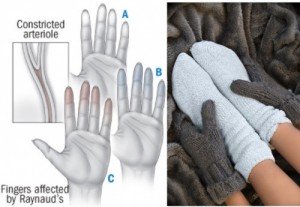
A Simple Test To Check If You Get Enough Iodine
Floridians often worry about the state’s ecology when the Army Corps of Engineers introduces experimental projects. Without apparent regard for flamingos who feed on shrimp in shallow waters, the Corps flooded the Everglades in the 1970s. Deep water made it impossible for the birds to capture shellfish that contains high levels of iodine. When the flamingos lost their color, the Corps lowered the water level to let them catch shrimp and turn pink again.

Understanding Your Need for Iodine
Your thyroid needs iodine, but your body cannot produce it. Iodine helps your cells convert food into energy, and it aids your thyroid in controlling many of your body’s functions. Regulating your heart rate and breathing, nervous system, muscle strength, weight, temperature and much more makes the thyroid contribute significantly to your overall health.
Assessing Your Daily Requirement
Everyone needs iodine every day, including newborn babies. Until age six months, infants need 110 micrograms (mcg) per day and 130 mcg until they reach age one. Children up to age eight require 90 mcg daily and 120 mcg until they reach the teen years. At age 14, the requirement increases to 150 mcg daily for all adults. Pregnant women need 220 mcg daily, but the requirement increases to 290 for those who give breast milk.
Finding Dietary Sources of Iodine
Food that contains iodine includes common sources such as meat, cereals and milk. Other foods that provide the essential element include iodized table salt, bread, cottage or cheddar cheese, shrimp, eggs, sea bass, green vegetables and leafy greens like spinach. One-quarter teaspoon of iodized salt contains 95 mcg, nearly two-thirds of the daily requirement for adult men and women.
RELATED ARTICLE: Why Your Family Needs Vitamin K And What Are The Main Signs You’re Lacking It
Considering the Main Thyroid Problems
With an insufficient supply of iodine, the body reacts with increasing fatigue and sensitivity to cold, constipation, dry skin, weight gain, muscle weakness, swelling in the joints, higher blood cholesterol, depression, slowed heart rate and impaired memory. Goiters, a type of thyroid growth, occur as a consequence of iodine deficiency less frequently than they did prior to the introduction of iodized salt.
Detecting Iodine Deficiency
A simple test that you can conduct in the privacy of your home lets you know if you have an iodine deficiency. Inexpensive and easy to do, the test gives you results without having to wait to hear from your doctor.
Taking the Test
After your morning shower, paint a postage stamp-size square of orange colored iodine on the inside of your wrist. Make a note of the time when you start the test.
Evaluating the Results
Your thyroid probably has an adequate supply of iodine if the patch on your arm disappears only slightly within 24 hours. When you have a deficiency, your body tends to absorb it quickly. You may have a mild deficiency if the patch almost disappears within 24 hours or a moderate case if it disappears within 18 hours. Fading completely within 12 hours indicates a severe case, and a spot that disappears completely in less than six hours confirms your iodine deficiency.
You can repeat the test every week or two to stay informed about your iodine levels and take corrective steps as necessary.





